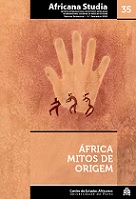Oral Traditions and Human Development in Africa: Lessons from the Ibibio- -Speaking People of Nigeria
Resumo
This paper examines the concept of oral traditions (oral literature) in Africa, and its relevance to human development. It draws attention to the richness of indigenous knowledge contained in oral literature and demonstrates how the characters of individuals within a community can be molded by the values embedded in oral literature. The paper argues that the issue with development, especially in Africa, is that it is often seen only from the viewpoint of industrialization or productivity, thereby
neglecting the need to transform the human mind.
Oral literature is at the center of human development because, like the function of literature itself, it promotes ethically driven actions, by educating on what ought to be and not just what is. It concludes that any discussion on development and social change in Africa, and possibly beyond, will be incomplete if adequate attention is not given to the oral literature or traditions of the African people. Every knowledge-led development strategy of any nation must be built on a solid foundational core of an understanding of values. As Africans, to craft a better future, we need to understand the lessons of our past, and this is to be achieved by a reconsideration of the values and principles enshrined in the oral traditions of these communities and cultures.
Keywords: Oral traditions, literature, human development, Africa.
Downloads
Downloads
Publicado
Como Citar
Edição
Secção
Licença
Direitos de Autor (c) 2022 Africana Studia

Este trabalho encontra-se publicado com a Creative Commons Atribuição-NãoComercial 4.0.
Os autores cedem à Revista Africana Studia o direito exclusivo de publicação dos seus textos, sob qualquer meio, incluindo a sua reprodução e venda em suporte papel ou digital, bem como a sua disponibilização em regime de livre acesso em bases de dados.
As imagens, no caso de serem originais e enviadas por via postal, serão devolvidas se assim for explicitado pelos autores.
A Africana Studia é uma revista de acesso aberto que visa promover a divulgação e o debate da investigação científica. Todos os artigos aceitos são, portanto, publicados gratuitamente para autores e editores.




